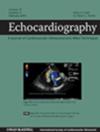Echocardiographic Markers of Prognosis in Patients Undergoing Ventricular Arrhythmia Ablation
Abstract
Background
Radiofrequency catheter ablation (RFA) plays an increasing role in the treatment of ventricular arrhythmias (VAs). This study aimed to evaluate the echocardiographic and clinical characteristics of patients undergoing first-time RFA for VAs and to identify risk factors associated with VA recurrence, implantable cardioverter-defibrillator (ICD) therapy, and mortality.
Methods
We studied patients scheduled for first-time RFA for VAs from 2011 to 2022 with available transthoracic echocardiography before the procedure. The primary outcome was defined as VA recurrence, and the secondary outcome was defined as appropriate ICD therapy and mortality. Uni- and multivariable Cox hazards regression models were used to assess the prognostic value of cardiac structure and function by echocardiography.
Results
A total of 218 patients (mean age 61 years [±15], 62% men, mean LVEF 51% [IQR: 44; 57]) underwent RFA during the study period. Of these, 90 patients (41%) had VA recurrence while 52 patients (24%) developed the secondary outcome during a median follow-up time of 3.1 years (IQR: 1.1; 6.7 years). Patients with ventricular tachycardia had significantly more right—and left ventricular (LV) dysfunction, compared to patients with premature ventricular contractions. No echocardiographic measures were associated with VA recurrence, while several echocardiographic measures were associated with the secondary outcome. LV mass index, LV ejection fraction, global longitudinal strain, and VA recurrence showed the highest predictive values of the secondary outcome.
Conclusion
In patients undergoing RFA for VAs, several echocardiographic measures may identify patients at risk of an adverse outcome.


 求助内容:
求助内容: 应助结果提醒方式:
应助结果提醒方式:


